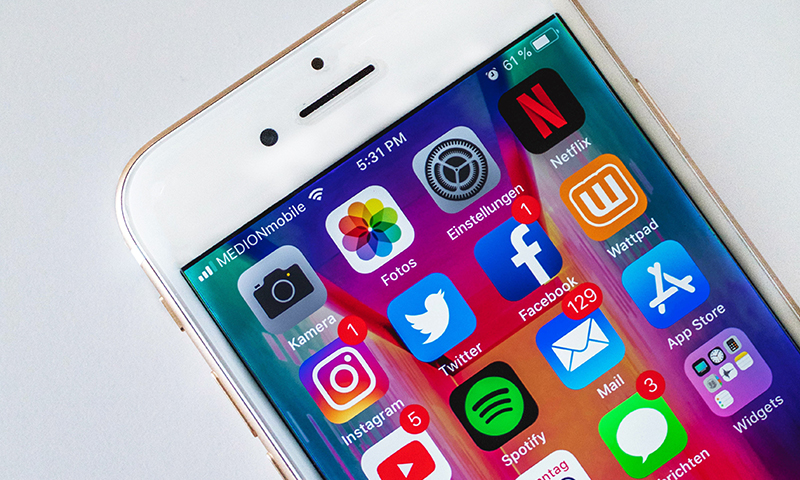Social media and cell phones are useful tools for social and business connections, communication,education, brand exposure, and advertisement. It’s very difficult to be successful in this world without using them at some point. There’s nothing wrong with taking full advantage of their capabilities and using them to your benefit. However, it’s important to learn and follow the laws that apply to social media and cell phones since they have a direct impact on you and so that you will be aware if someone is trying to take advantage of you or illegally invade your privacy.
The government imposed restrictions on how much of your personal data they can access. You also don’t want to break a law you weren’t aware of unintentionally. This is why it’s crucial to stay informed on recent laws on social media and cell phones. Always cooperate when law enforcement needs to access your data on either one.
Social Media

Almost everything in society today either relies on or has some correlation with social media. The biggest talked about issue with social media is a violation of privacy. Consumer have great concerns about the amount of personal information and data that companies and government agencies possess; especially after the information released by Edward Snowden about the CIA’s spying capabilities.
There’s a lot of debate as to what the definition of a privacy violation on social media is, and you may have seen the series of questions that Congress asked Mark Zuckerberg (the founder of Facebook) about how much personal data Facebook collects from its users. To most people, this is, toan extent, a privacy issue. But to others, it’s necessary to make their social media experience more personalized.
Advertisement agencies use internet cookies and third-party providers to collect a basic gathering of your preferences and dislikes, for more successful advertising and marketing. This process is unavoidable, but it can be regulated to an extent. The laws become very tricky because there’s not always a clear idea of how much search data they collect from you on a day-to-day basis.
Social Media Privacy Laws
Privacy laws on social media usually depend on the state you’re in. Click here to view the social media privacy laws by state. Some states have social media laws that apply to employers; other states’ laws apply to educational institutions or even landlords. These laws continue to change and improve as social media has an increasing impact on them. Because of social media’s influence, the laws have had to change dramatically to accommodate for it.
New laws governing internet privacy laws are being enacted all the time. In 2012, legislation was put into place that prevents employers from requesting passwords to personal Internet accounts to get or keep a job. Other social media privacy bills are being created all the time but rarely go through to become a law.
Law Enforcement
Law enforcement everywhere is becoming increasingly aware of how they can use social media to solve crimes, find missing people, and to catch runaway fugitives. Resource officers in schools use it to intervene in underage drinking and drug operations that happen on campus. It has been aneffective way to keep young adults and teenagers away from things that could ruin their life forever.
Kids may not be old enough to be formally charged with substance and paraphernalia possession, but they can be disciplined accordingly and taught a lesson on why they shouldn’t become involved with such things.
The IACP (International Association of Chiefs of Police) created a Center for Social Media for the purpose of building the capacity of law enforcement to use social media to prevent and solve crimes.
How Law Enforcement Uses Cell Phone Records
Cell phones, just like social media, can be used for solving and preventing crimes. In some instances, the police or federal government agencies request a subpoena for obtaining someone’s personal cell phone records and data, whether it’s to intervene in that person’s crime or to catch someone who committed a crime against them.
Probable cause is an absolute requirement for the granting of a subpoena or warrant. This is because the fourth amendment protects your “personal space” from government intrusion, including on your cell phone. There is an exception in the event of a crime or other legal justification. Sometimes the need for a warrant isn’t necessary by going through a third-party source, but this isn’t standard procedure and can only be under certain circumstances.
Upon cell phone warrant or subpoena approval, an officer is allowed to recover data and history from your phone, aka your cell phone records. Cell phone records show your complete cell phone history, which consists of all recent connections and contacts – phone calls, texts, and pictures. If they have your physical phone in hand and have a search warrant, they can also view your most recent search history on your internet browser.
Cell Phone Tracking
Cell phone records aren’t the only useful resource for law enforcement during investigations. Sometimes in hasty situations, they might need to track a cell phone number. This is a much faster process than warrant application and approval, especially since almost a third of US states have no laws against cell phone tracking.
Cell Phone Laws by State
The requirements to obtain a warrant for a cell phone search or location tracking vary by state. Not all states require a warrant to track a cell phone number, Texas, for example, does not. Click here to view the cell phone laws by state.
You will see that some states are a lot stricter on their regulations compared to the other states. In most locations, the cell phone tracking process in inherently easy for police officers. As long as you’re not breaking the law, this should not have a negative impact on you. If it does, you can take it to a lawyer to get their opinion on the possibility of police harassment or stalking.
